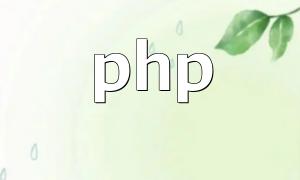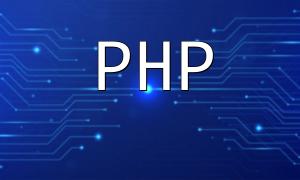In PHP development, enhancing code performance and optimizing memory usage are crucial. Efficient applications not only provide smoother user experiences but also reduce server load and resource consumption. This article shares practical optimization techniques to help developers create high-performance PHP applications.
Selecting the right data structures and algorithms is key to improving performance. Using the most suitable approach for different scenarios can significantly reduce runtime and memory usage. For example, linked lists are more efficient than arrays for frequent insertions and deletions, and choosing an efficient sorting algorithm can lower time complexity and boost overall speed.
Global variables consume more memory and may cause naming conflicts. It is recommended to limit variable scope within functions or classes. This not only conserves memory but also improves code clarity and reduces potential errors.
Using reference passing during function calls avoids unnecessary memory copying, especially when passing large arrays or objects. Proper use of reference passing can increase execution efficiency.
Frequent database queries often become a performance bottleneck. Optimizing SQL statements, merging queries, and applying caching mechanisms can effectively reduce database load. Additionally, selecting the appropriate database type such as NoSQL based on business needs can further enhance performance.
Caching is a crucial method to improve application performance. Using memory cache, file cache, or tools like Redis to store frequently accessed data reduces database queries and significantly improves response times.
Object-oriented design improves code readability and maintainability. Proper use of encapsulation, inheritance, and polymorphism promotes code reuse and structure optimization, enhancing program flexibility and efficiency.
Avoiding unnecessary repeated calculations and duplicate code is fundamental to performance improvement. Caching computation results or using loops to replace repetitive code reduces CPU workload.
When reading or writing large amounts of data, setting an appropriate buffer size is vital. Too small buffers cause frequent system calls and reduce efficiency, while too large buffers waste memory. Finding a balanced buffer size improves both performance and memory usage.
Memory leaks cause memory usage to grow continuously, eventually exhausting server resources. Developers should promptly release unused variables and resources to avoid memory leaks during long-running processes.
Performance analysis tools help pinpoint code bottlenecks accurately. For example, Xdebug provides detailed performance reports to identify inefficient code, while tools like Blackfire analyze memory use and performance in depth, assisting with optimization.
By applying these methods, PHP developers can effectively enhance application performance and memory efficiency. In real projects, continuous code optimization tailored to specific business requirements will help build stable and high-performing systems.









